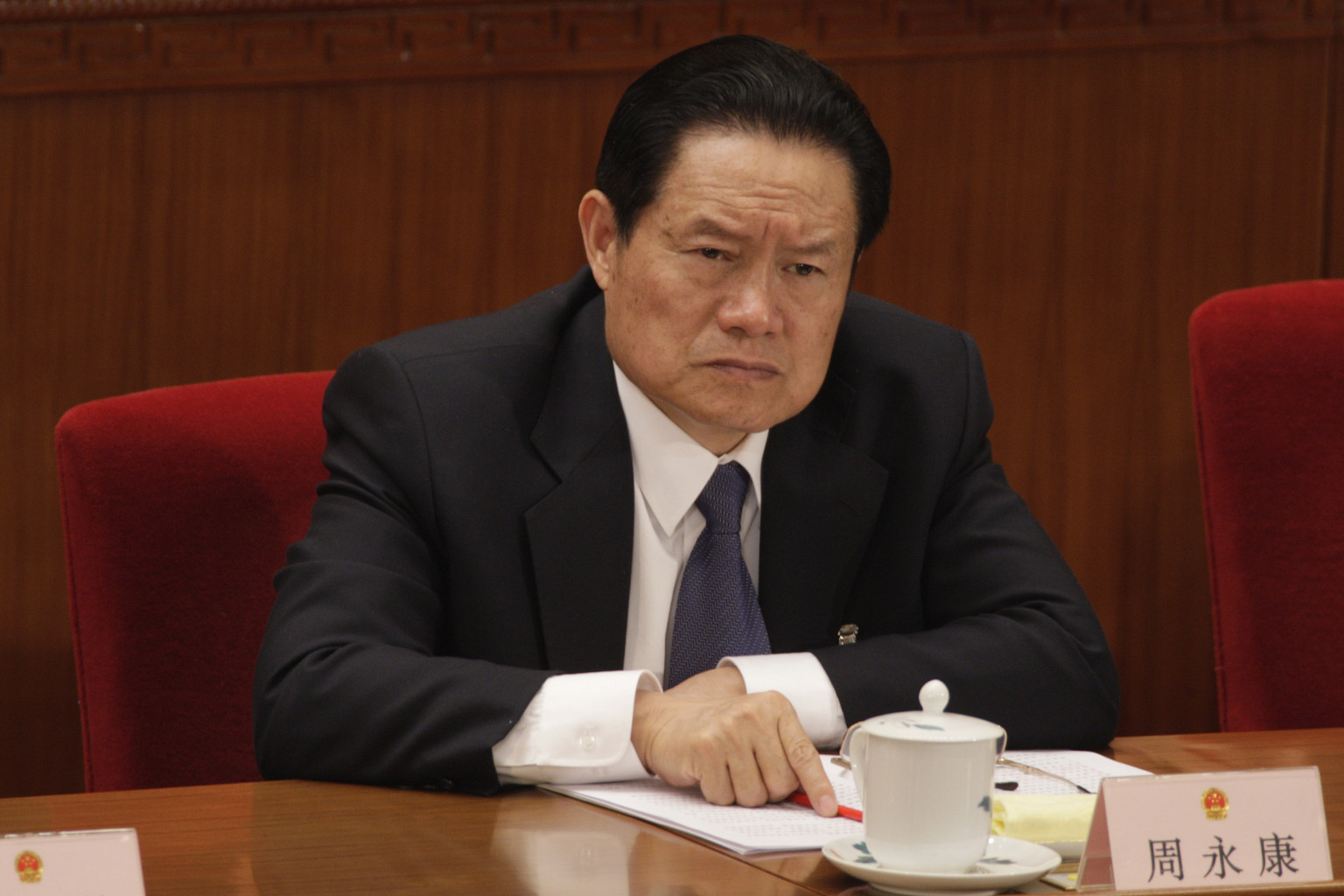
(TibetanReview.net, Jul31, 2014) – After a sustained period of speculations and anticipations, during which lesser “tigers”, including relatives, were detained, investigated or jailed, China announced Jul 29 that the biggest of the big tigers in its anti-corruption campaign had been formally placed under investigation. The investigation of Zhou Yongkang, a former Standing Committee member of the Political Bureau of the CPC Central Committee, for suspected “serious disciplinary violations” will be conducted by the CPC Central Commission for Discipline Inspection (CCDI), reported China’s official Xinhua news agency Jul 29.
The downfall of a “big tiger” like Zhou could have a deterrent effect on Party members and corrupt officials who believe they are immune, the report said.
The news sparked frenzy on the Internet as the Jul 29 announcement ended months of speculation over Zhou’s fate after dozens of his associates came under investigation, said China’s official chinadaily.com.cn Jul 29. It added that by investigating Zhou, who once managed China’s vast security network, Party General Secretary and state President Xi Jinping had demonstrated his commitment to seek out corrupt officials within the highest ranks of government.
Zhou, 71, became a member of the Political Bureau of the Communist Party in 2002 and was on its nine-member Standing Committee from 2007 to the time of his retirement in Nov 2012. He is believed to be the most senior party figure ever to face a formal investigation, the report added.
A Xinhua commentary Jul 29 cited CCDI as saying around 40 officials of provincial and ministerial level or higher had been investigated for corruption or other serious disciplinary violations since Nov 2012.
Analysts and observers, however, see the development as more than just a campaign against corruption. They see it as Xi’s move to consolidate his power. The Mandarin and Cantonese Service of Radio Free Asia (Washington) Jul 29 cited Willy Lam, China politics expert at the Chinese University of Hong Kong, as saying the announcement that Zhou will be investigated was a sign that Xi had succeeded in consolidating his power since taking the helm of the party in 2012. He has called Xi the first person to break the unwritten rule that Politburo Standing Committee members are ‘untouchable’.
“Xi will emerge as a strongman because he can use the anti-corruption card to punish or intimidate real and potential foes,” he has added.
The Jul 29 Xinhua commentary said that while putting an end to the months-long speculation and hearsay about Zhou’s case, the announcement also clearly terminated a myth among many people that senior leaders were regarded as immune from the Party discipline regulation and the country’s law enforcement.
But according to Lam, the announcement was likely the result of some tough deal-making behind the scenes. “Various party elders including [former presidents] Jiang Zemin, Hu Jintao and [former premier] Li Peng, agreed to incriminating Zhou Yongkang on condition that Xi will not target other former members of the Politburo standing committee.”
Zhou’s fate is seen as being linked to that of his one-time protégé, former Chongqing party chief Bo Xilai now jailed for corruption, embezzlement and abuse of power. The report cited sources following the investigation as saying dozens of Zhou’s former colleagues, political allies, and family members had been detained or were helping the authorities with their inquiries.
Zhou came under the scanner in May of 2012 when Communist Party members wrote to then president Hu Jintao, asking for the dismissal of Zhou for his support for the disgraced Chongqing party boss Bo. They alleged that he was part of a movement to revive a Maoist movement in China spearheaded by Bo, said a finance.yahoo.com analysis Jul 29.
Zhou was a member of the leadership of the China National Petroleum and Natural Gas Corporation from 1988 to 1998, was Minister of Land and Resources from 1998 to 1999, and became Secretary of the Sichuan Provincial Party Committee in 2002. As the country’s state security boss Zhou commanded a budget bigger even than that of the country’s defence ministry.
Zhou was last see visiting the China University of Petroleum’s 60th anniversary celebration in Oct 20013 in pictures posted on the university’s website.


